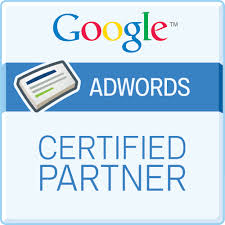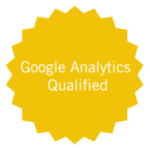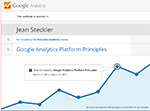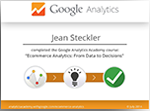 Pay-Per-Click (PPC) is an advertising model in which the advertiser pays an established fee to the publisher every time the advertiser’s ad is clicked on from the publisher’s site. Pay-Per-Click ads can be marketed on popular sites, such as Facebook, but are more frequently displayed on search engines. Google AdWords is the most popular provider of PPC services. Most forms of PPC search engine marketing operate under a bid-based model.
Pay-Per-Click (PPC) is an advertising model in which the advertiser pays an established fee to the publisher every time the advertiser’s ad is clicked on from the publisher’s site. Pay-Per-Click ads can be marketed on popular sites, such as Facebook, but are more frequently displayed on search engines. Google AdWords is the most popular provider of PPC services. Most forms of PPC search engine marketing operate under a bid-based model.
In a PPC campaign, the advertiser selects targeted keywords that are frequently searched for by a strategic demographic. When keywords related to the PPC ad are searched for in the search engine, the paid-for -listing (also known as the sponsored link) is published above or adjacent to the organic search engine results. The amount charged to the advertiser depends on the competitiveness of the keywords chosen and the relation of its website to the keywords searched.
The keywords chosen to trigger the PPC ads are the most important aspect of a PPC campaign. Because different online demographics perform different searches, it is important to choose particular keywords that will help potential prospects find you. Also, because the field of strategic keywords is fiercely competitive, a continual analytic approach to PPC campaigns is necessary to ensure a proper return on investment (ROI).
Building Desire & Sense of Urgency
 Once you have caught the attention of your prospects, keep reminding them of your value and offers – until they convert.
Once you have caught the attention of your prospects, keep reminding them of your value and offers – until they convert.
Retargeting or in Google parlance, remarketing, allows you to show your ads repeatedly on a wide assortment of sites. Once a visitor comes to your site, the program tags them and stores a a “cookie” in their web browser’s software. Once tagged, they see your ads repeatedly on any of the sites that participate in the ad network. For example, if we use Google’s display network, your ad will appear when someone is reading any one of the online news publications or catalogs that participate in Google’s vast display network, giving you the opportunity to reach users on millions of sites.
Remarketing is a powerful way to stay engaged with your target audience. Presenting them with highly relevant ads and offers across the Web make sure your brand is top of mind. Ad retargeting is powerful internet marketing technique because it allows you to stay connected with your target audience, even after they leave your site.
Certifications
Search Experiment
| Experimenter | Timothy Ferris |
| Test | Tim Ferris ran a one-week test with a budget of $200 on Google Adwords to test titles for his book on the New Rich. He ran Google Adwords campaigns on the different titles, including: ‘Broadband and White Sand’, ‘Millionaire Chameleon’ and ‘The 4-Hour Workweek’. He bid on keywords related to the content of the book, such as 401K. The headlines of the ads were the titles he was interested in testing. |
| Lessons Learned | He discovered the title: “The 4 Hour Workweek” had more resonance with consumers than the other titles he considered, resulting with the highest click-thru rate. |
| Observation | Use Google Adwords to test article titles, home page images, even book covers. With Google Image Ads, companies can test the effectiveness of images now in addition to text titles. Had Google Image Ads been available to him in 2006, he could have saved on his book cover research. That he did by printing the cover alternatives, placed them on similar sized books in the new non-fiction shelves at Borders, Palo Alto and observed which covers generated the most interest. |
Recommended Blogs and Webinars
- Google Adwords Best Practices
- Google Adwords Blog
- Google Commerce Blog
- Google Shopping
- Google Shopping Support
- Google Shopping Course
- Google Shopping Certification Exam Study Guide











Recent Comments